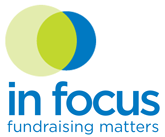Recent Posts
- The Secret Sauce: Strategies & Tactics to Engage Institutional Funders
- What Are Your Donors Saying When They Go Quiet? And How Should You Respond?
- Maximizing Year-End Giving: Strategies for a Successful Fundraising Campaign
- Navigating 2024’s Unique Year-End Fundraising Landscape
- Latest Giving USA Data
- How to Flex Your Case for Support to Raise More Money
- Maximizing Potential of Donor-Advised Funds: Strategies You Need To Know
- Major Donors: Cultivating Relationships & Forging Strong Ties
Is a Development Committee Worth Your Time?
By: Nadine Gabai-Botero, CFRE, President
April 26, 2022
In the past month, I’ve had a number of conversations with clients and colleagues about development committees. You know, the group that focuses on all things fundraising and (sometimes) helps your Board increase its effectiveness in raising contributed revenue.
It may sound like I’m not a fan. Actually, I am - but only when they are set up for success. And, when all those involved including staff, committee members, and Board members who don’t sit on the committee, are all on the same page.
How To Establish A Development Committee
If you’re considering whether to revamp you committee or establish one for the first time, here are a few elements to consider:
Build the committee with individuals who understand fundraising, have a network they can tap into, and/or can help inform your process.
When you’ve got the right folks around the table (or zoom screen), this group can be extremely effective. Select people thoughtfully, looking for experience with events, appeals, and campaigns, and those who are connected to donors you’re trying to reach.
This group isn’t a stand in for the Board’s engagement with fundraising.
At committee meetings you’ll delve into fundraising issues and process, but Board meetings should include some development discussions. You should expect all members to play some role in fundraising (as ambassadors, askers, advocates, etc.) even if you have a development committee in place.
The development committee chair should be your fundraising champion on the Board. Have the chair bring your wins and challenges to the board for discussion, and work with him/her to encourage Board members to give and participate with development.
Development committee is a great proving ground for potential Board members.
Some organizations don't want non-Board members on the development committee, but I disagree! This is a great opportunity to share details about your organization, ask for help and guidance, and see how people respond. Of course, you should underscore the importance of discretion with any information shared as new committee members join the group.
Create a development committee charter and job descriptions for members.
You may have clarity on what you want this group to accomplish, but if you don’t share it and come to consensus on goals and what members will do, things will likely stall or go in the wrong direction.
Remember, your committee members are volunteers.
As anyone who’s worked in a nonprofit knows, when there’s a lot to do, it’s tempting to ask more and more of your volunteers. Don’t overwhelm them! Come to committee meetings prepared to dive into specific strategy challenges, event issues or planning needs, new prospects you’re trying to reach, or other goals. While you can follow up with committee members to ask for additional support, these are not staff members and shouldn’t be expected to carry a big fundraising load for your organization.
I’d love to hear about successes or challenges with your development committee. And if you’d like to talk through establishing a committee, email me here to set up a complimentary 30-minute consultation.

